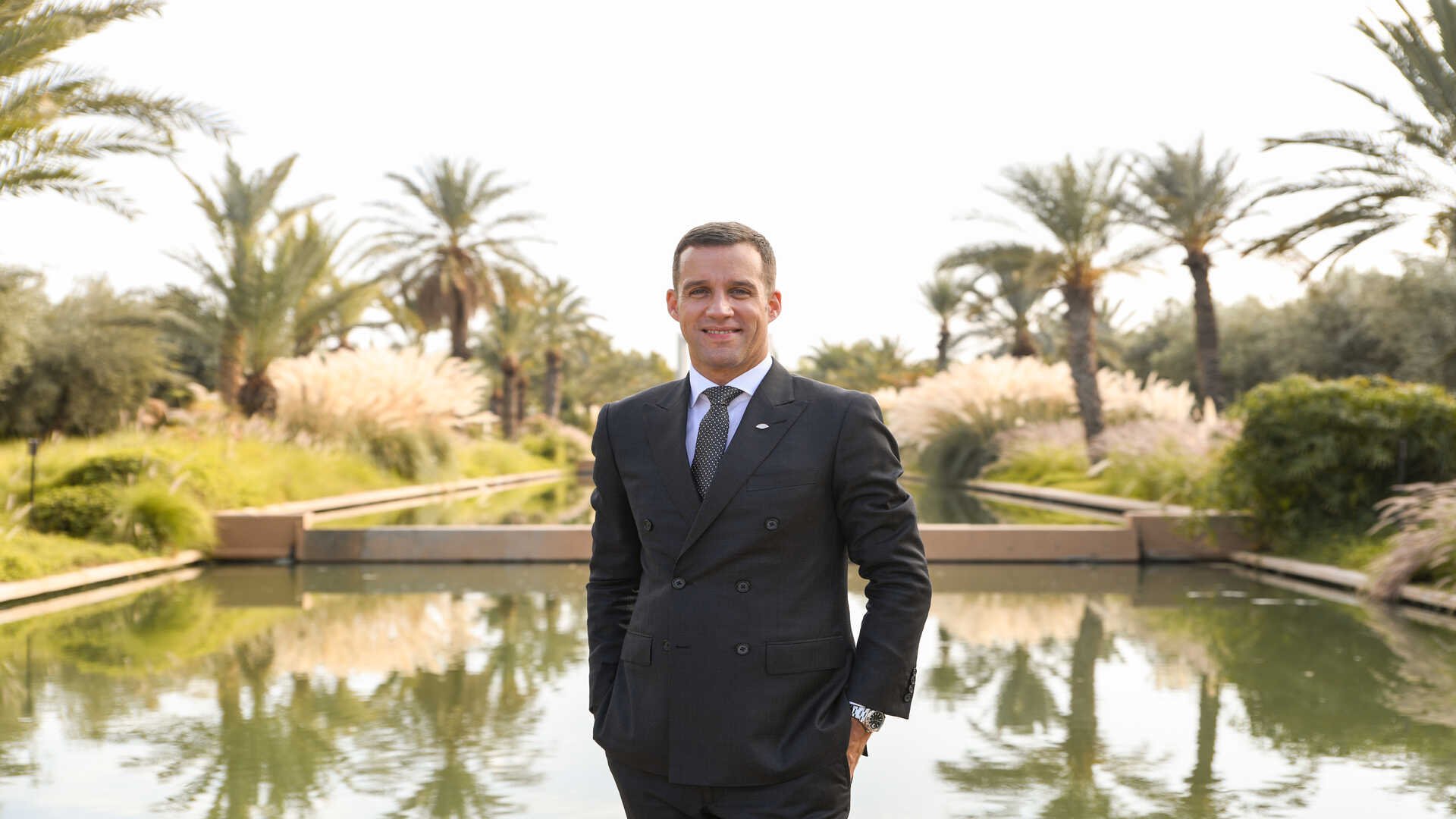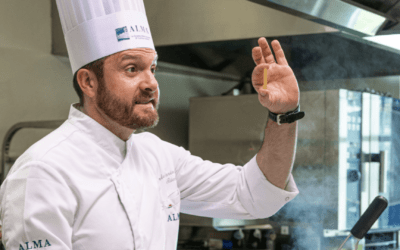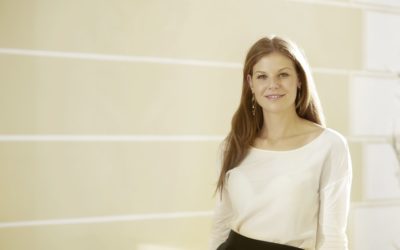Marcel Thoma joined the Mandarin Oriental during one of the most challenging periods in the hospitality industry’s history – the year of worldwide lockdowns. It was March 2020 and he was based out of the Hong Kong HQ waiting for Morocco to open borders. He finally arrived in Marrakech in September just as the country was gingerly reopening its doors to the world, but for the next year and a half, the North African country remained one of the strictest in the world in terms of travel restrictions. Hospitality venues had to pivot fast to survive. Luckily, Marcel had 20 years’ experience behind him at some of the world’s leading hotel groups, among them the Ritz Carlton in Mexico and Spain, the Carlyle in New York, and The Upper House, Hong Kong and is not one to take a challenge laying down.
What attracted you to hospitality in the first place?
I grew up in a small village in Switzerland about 45 minutes outside of Zurich and was bored out of my mind with the thought I’d have to live there for the rest of my life. From a very early age I was desperate to discover the world. In fact, when I was about 5 years old we took a family trip to London and I was like ‘wow’! It was the early eighties, there were punks, people with pink hair – a whole style - and because we didn’t have this kind of thing in Switzerland, it left a very big impression on me. When I was 16 I got the chance to do an internship at a very good sports and conference hotel near Lake Constance. I loved the movement of it, hearing the stories of the high-profile tennis players and football teams checking in; it was my first experience with VIPs and celebrities and I fell in love with it.
How did you go about building your career?
A friend was going to Bangkok on business and he recommended I tag along and apply for a guest relations internship over there. It 1997, I was 20 years old, and tourism was booming. It was an incredibly exciting place to be and I loved exploring this new culture, but the GM was Swiss, and he took me under his wing and gave me a very important piece of advice. He said: ‘Look young man, you can easily join somewhere like the Hyatt, do a management trainee programme and become a GM. But honestly, what you should do, is go back to the École Hôtelière de Lausanne (ehl.edu), and get your education. It was not what I wanted to hear, because it was very old fashioned - you had to be impeccably turned out and wear a suit and tie, which they’ve only recently abolished – but it was the best place in the world if you really want to understand what it means to run a hotel. So that’s what I did.
What attracted you to the Mandarin Oriental?
It’s one of very few companies that is big enough to be global, but not so big that it loses the personal touch and that meant a lot to me. It’s incredibly well-organized from the training we receive, through to the philosophy behind the way we work, to our standards of service and support system. They demand a lot, but you never get bored and you have solid career prospects.
What does hospitality mean to you?
It’s such an easy job, and yet it is so very difficult. It’s like putting on a huge, 24/7 show. You have lots of room to delight people, but you also have lots of room to drop the ball and obviously humans don’t work like this. You have to sleep and eat, so you depend on your team and you have to trust them. You need to know that if you invite somebody to see the show, it must be worth it. As the show director you’re not just welcoming people and making sure they are really happy, you’re also dealing with the emotions of your team and your guests - you become a psychologist, a doctor, everything in between – and if you’re not passionate about it, you will never succeed.
How have you handled the last two, very challenging years?
When I arrived, it was terribly sad to see the medina so deserted, but the moment they opened the borders the French appeared and there was a definite sense of life coming back. When things closed again in March 2021, sacrifices had to be made, which was particularly tough in a country where the government didn’t have a furlough system and the only support for colleagues was 2000 dirhams per month, which even in Morocco is not very much.
We decided to stay open and looked at the domestic market. We relaunched our Sunday, poolside brunch and got in touch with Chef Akrame Benallal, a Michelin starred chef in Paris, who did a pop-up of his Shirvan Café Métisse concept from December 2020 until June 2021. It’s now a permanent fixture. We also revamped our spa offerings inviting the best masseuse and wellness designer in France, Jimmy Jarnet, to overhaul our programmes. Before the pandemic we rarely had any local guests, and what we discovered through this, is they love having a place that balances somewhere to have fun, with somewhere serene enough to relax in.
What are the three key factors to running a successful hotel?
First, you have to have a good team who share the same values and passion around what you do. Without a good team you can’t do anything. Secondly you need supportive owners and superiors who are there to help and challenge you, and who share their ideas and feedback especially when things are not going the way you want. Thirdly, and most importantly, you’re nothing without good clientele. If they don’t talk about your hotel after they leave, if they don’t help you to spread the word, you can do advertise all you want, but you won’t get the word-of-mouth, which is so powerful. Helping people to engage and create memories, to miss you when they leave, is super important and there’s nothing more rewarding when people who are still with you tell you they’re already planning their next trip.
What excites you most about working in Morocco?
Morocco is one of the last remaining authentic countries. They’ve done a very good job of protecting heritage, culture and things from the past like the medina of Marrakech, which is a UNESCO protected world heritage site, and the nature is incredible. We don’t have ritzy shopping malls filled with Gucci and Prada, but instead local craftsmanship is unique and something you don’t find in many destinations any more. It’s an extraordinarily interesting tourist destination.
What are the key challenges facing the industry and how are you moving forward?
Finding talent is difficult. At a junior level, most are not excited by the prospect of serving coffee to a guest at 7am on a Sunday morning, or by the idea of clean up after people as a career prospect. So here I think the key is to showcase what are we offering: a sense of family, stability, solid training, career development opportunities, and a lifestyle. At the end of the day, this is a human business, and I still believe people are truly interested in service, because it’s very rewarding to make people happy.
Recruiting middle to upper management is extremely important, but with more and more hotels opening, there are less and less people to fill the roles. We’re addressing this by promoting internally, and where before we were hiring based on experience, today we’re hiring based on passion and a willingness to learn and will happily invest in the training needed to make that person a hospitality professional.
Despite all the challenges, what still excites you most about the industry?
I love the fact that no day is the same, that I meet new people every day, and that I can travel around the world and know somebody in nearly every city. You become very rich in your experiences. Working in hotels means you can work anywhere from Timbuktu to Scotland, Abu Dhabi to Siberia, because the actual job of looking after people is the same everywhere. What changes is the environment, food, mentality, weather and circumstances.
What ambitions do you have for yourself in the coming years?
The pandemic has taught us that our plans may not become reality. I can’t imagine sitting still for the whole day staring at a computer, but I’d love to work at another Mandarin Oriental in another destination. I always want to evolve and I’m very open to experiencing new things whatever comes my way.




